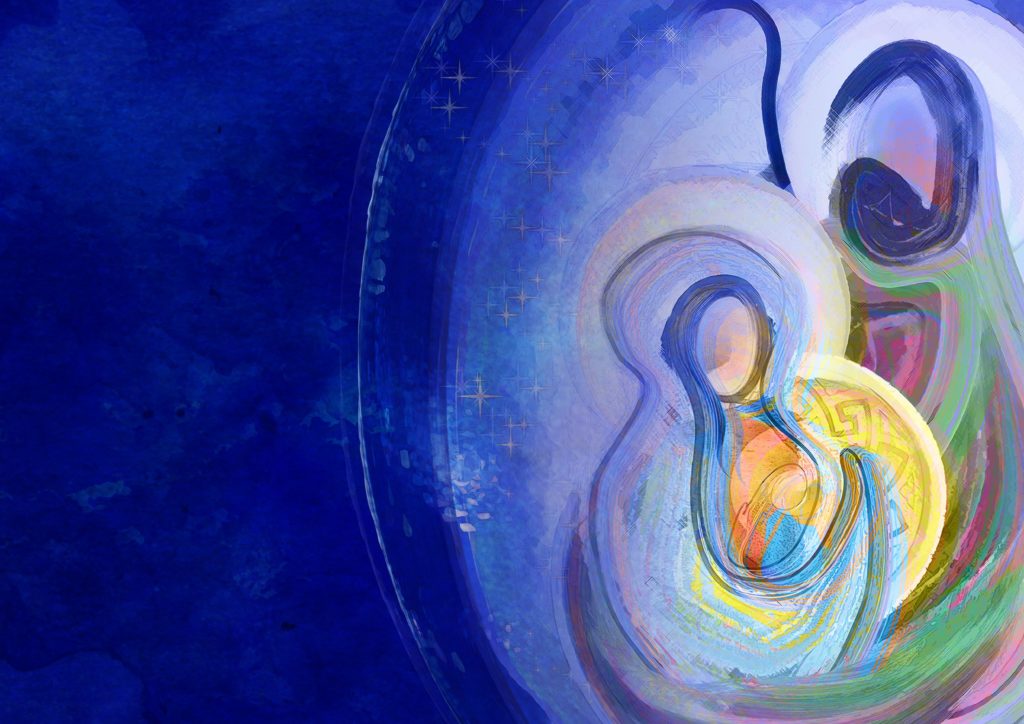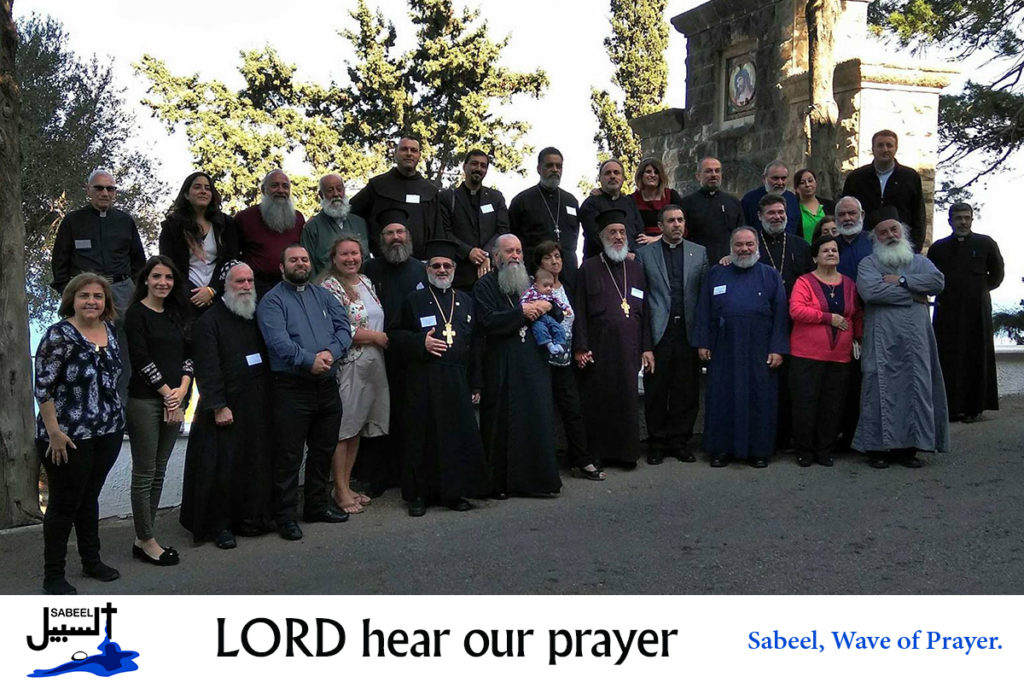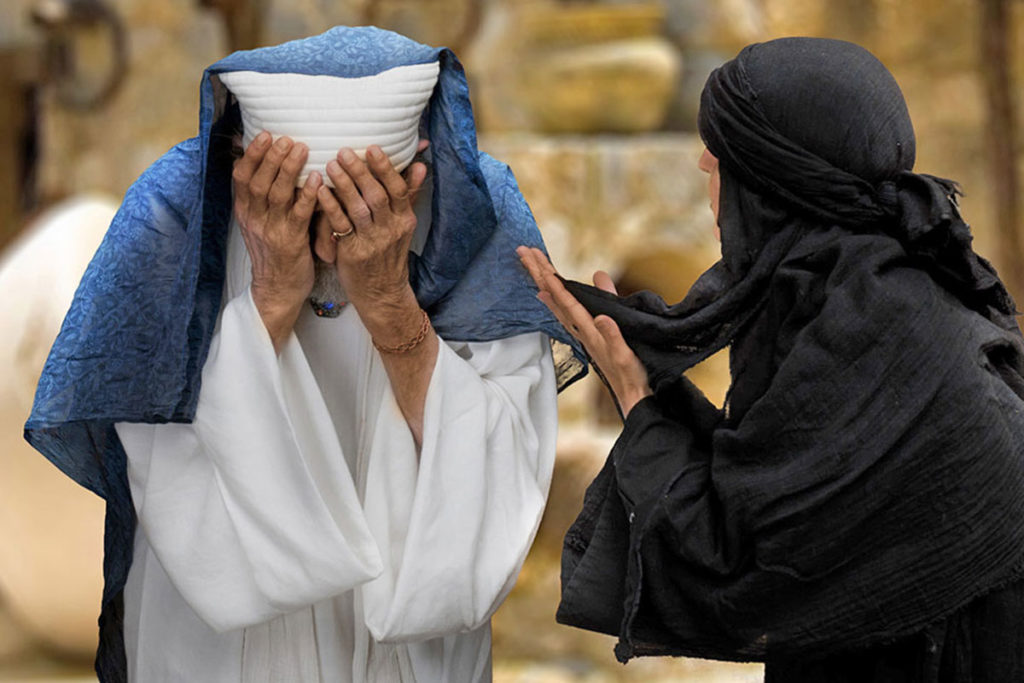

On the 11th May 2018, Sabeel women met together to talk about the “Nakba” – from the beginning to the present day. In addition, they talked on how to raise awareness of the events, especially among the new generation.

“Do not be afraid, for see – I am bringing you good news of great joy for all the people…” (Luke 2:10)
Dear Friends,
As we look back on 2018, we see that it has been a very difficult year in Palestine. It has been another year in which refugees were denied rights, and another year of occupation in Gaza, the West Bank, including East Jerusalem. There has been continued Jewish settler violence, home demolitions, arbitrary detention and arrests, deprivation of natural resources, and restriction of movement. While these are not new measures of occupation, the situation has been exacerbated by several political decisions. These include the ratification of the Nation State Law by the Israeli Parliament, the American decision to move their embassy to Jerusalem, and the defunding of UN operations designed to help Palestinian refugees.
Although we lament the loss of life and pray for all those wounded, we celebrate this Christmas with hope and joy. One source of hope is the mostly nonviolent Palestinian response in spite of the worsening situation. The March of Return has continued since the month of March, with Gazans of all ages demonstrating every Friday after noon prayers, seeking justice and the right to return to their villages. Various villages in Palestine and Israel also continue their regular nonviolent struggle against the harassment and oppression by Israeli forces. The Bedouins of Khan al-Ahmar (in occupied Palestine) and al-‘Araqib (in Israel), along with fellow Palestinians, Israeli activists, and international supporters, have been steadfastly withstanding in the face of Israeli forces determined to remove them.
It also gives us hope to see that nonviolent resistance has become more of a commitment for both the Palestinian political leadership and, more importantly, the indigenous population. We are hopeful, even though the international community continues to fail in the implementation of its resolutions due to obstructionist US policies. We are hopeful, because we know God will not allow injustice and oppression to last forever. For this reason, we Palestinians will remain committed to nonviolent direct action. We continue to be steadfast in our land, in our beliefs, and in hope—this is the meaning of Sumud.
As Palestinian Christians, our hope and our joy stem from the story of Jesus Christ, born in Bethlehem. We know that two groups of people came to visit the Christ child after he was born. First, the shepherds came. These were local people coming from the Bethlehem-Beit Sahour area, and for us they represent the Palestinian people today, many of whom followed Christ and became his disciples.
The second group of visitors were foreigners from faraway lands. These Magi represent for us the many who continue to come to Bethlehem, from around the world, to pay homage to the one known as Wonderful Counselor, Mighty God, Everlasting Father, and Prince of Peace. In fact, this group includes you, our Sabeel family from around the globe, who continue to hope, to pray, and to take action with us for the sake of God’s justice and peace in Palestine and Israel.
Of course, today it’s not so easy to visit Bethlehem, whether you are coming from near or far. Bethlehem is under siege. It is an integral part of occupied Palestine. Palestine has been illegally occupied by the Israeli army for over half a century. In violation of international law, Israel has built a wall around the city. It has mounted checkpoints with Israeli soldiers in control of its entrances and exits which would keep out the Magi if they were attempting to visit Jesus today. And still, after a half century of illegal occupation, we Palestinians continue to cry out in hope for justice, peace, and liberation.
Even when the situation seems to be worsening, and the night seems too dark and too long, we remember that the Christmas story is about God’s love for the world. It is a story of a love that is outgoing, outflowing, unconditional, and sacrificial. We see that same love for justice in the nonviolent resilience of the Great March of Return, and in the nonviolent resistance of Khan al-Ahmar. We see that same love in the direct action and prayer of so many of you around the world. We see that same love when countries are bold enough to speak up for Palestine and to administer justice. We know that where love is found, and justice is practiced, liberation and peace are not far behind.
The challenge of this Christmas is: For our Palestinian people to continue their nonviolent struggle. For the Israeli leadership and all Jews of conscience to hear the cry of the oppressed Palestinians and to work for their liberation on the basis of international law. For all our friends and people around the world to become actively engaged in building a just-peace in accordance with international law.
Therefore, as we celebrate the birth of the Prince of Peace, we ask all people of goodwill to rise-up together for justice and through Sabeel’s Kumi Now initiative and alongside our Palestinian people, Israeli and international friends to share with others the love and peace, the hope and joy of this Christmas season. (For more information visit www.kuminow.com)
Merry Christmas and a Happy New year!
Rev. Naim Ateek
Chair of Sabeel Board, Jerusalem December 6, 2018

Sabeel is holding its annual Ecumenical Clergy Retreat this week Monday 12th to Wednesday 14th of November. The retreat will take place at the Carmelite Convent of Stella Maris on Mt. Carmel in Haifa. A number of distinguished clergy and lay people will lead the sessions.

Why this topic? Why now?
Why is Sabeel, a Palestinian Liberation Theology Center, publishing on the crisis of sexual harassment in Palestinian society?
Some readers may be uncomfortable with this topic being tackled while we are still suffering under the weight of the Occupation. Why do we want to “air our dirty laundry?” Will sharing these stories feed into prejudices against Palestinians, and against Arab men in general? Many times we have heard it said, “Let us achieve our human rights first, then we can deal with women’s rights.” In fact, this excuse is not unique to the Palestinian Liberation movement – this has often been arefrain among peoples fighting for liberation around the world. Sometimes it can feel that one struggle is simply enough at one time.
Others may wonder if Sabeel is simply riding the wave of the #MeToo movement, choosing to address this trending topic along with many other institutions grappling with stories of abuse, rape, and harassment perpetrated against women. Is it really necessary to have our #UsToo moment?
But we at Sabeel have chosen to address this critically important topic because we are a Palestinian Liberation Theology Center. This means that wherever there is injustice, we stand on the side of justice. Wherever people are oppressed, we stand for liberation. Whether we are talking about the occupation of Palestine, or the colonization of indigenous peoples, or the destructive forces of toxic masculinity in our homes, workplaces, and places of worship, we believe that Christ our Liberator requires us to stand with him, forfreedom.
We’ve never tackled this topic before. But now: Time’s up.
As we are a Palestinian Liberation Theology Center, we have looked Scripture to guide us in the exploration of this topic. Father NaimAteek has suggested we study Mark 5:1-20, the story of “Jesus Healing the Gerasene Demoniac.” While this passage does not deal with the issue of sexual harassment directly, we feel it has much to say about the way our society deals with demons—especially demons we’d rather not acknowledge.
The following reflections are the product of a recent group Bible study that took place in Jerusalem in February 2018. At the table were Fr. Ateek and several staff members and friends of Sabeel, including a local Lutheran pastor, three Palestinian women, and an international intern. We ranged in age from our mid-20s to mid-80s. We were five women and two men. We prayed, studied, and shared our own (sometimes painful) stories. We hope that these reflections from Palestine will be both a guide and an encouragement to you, wherever you are. Be not afraid to face the demons in your culture—even the ones your community prefers to keep hidden. Jesus has shown us: We all deserve better.
“We are many”
Atthe beginning of this story from Mark 5, Jesus steps out of a boat and immediately meets a man with an unclean spirit. This man lived among the tombs, in chains, which he often broke. In fact, he had wrenched them apart so often that no one had the strength to subdue him.
The possessed man saw Jesus from a distance and ran to bow before him. Surprisingly, a demoniac, not a disciple,is one of the first in the Gospels to recognize Jesus’ true identity. The man called him “Son of the Most High God”. He begged Jesus to stop tormenting him, for Jesus had demanded the unclean spirits leave the man’s body.
Then Jesus asked him, ‘What is your name?’ He replied, ‘My name is Legion; for we are many.’
Just as Jesus brought the name of the demoniac’s hidden tormentors into the open, at Sabeel we began our study by naming and confronting the demons possessing our society. What are we talking about, when we say “Sexual harassment”?
“My name is Legion, for we are many” said the demon. One of the obstacles to dealing with sexual harassment in our society is that the problems are so many and so widespread. Everyone has heard the stories. We know which streets to avoid, and what clothes to wear. Nearly every woman has suffered harassment, abuse or worse. “This is just the way things are,” it is said. “We are a traditional society. What can we expect?” “Maybe she was inviting trouble.”
“I’m afraid to tell anyone. I’ll just be victimized again.”
It is time to bring these demons into the open, and to name them. When we say nothing, we are complicit in “normalizing” these behaviors.
Sexual harassment in Palestine is a problem of power. It is a problem of religion. It is a problem of a traditional, patriarchal culture.
And it is also a problem intensified by Occupation.
Scripture says of the demoniac, “No one had the strength to subdue him.” We recognize and confess the ways in which occupation has held us back in addressing these other demons in our midst. Just as the Gerasenesknew the demoniac well, and sent him to live on the edge of town, we also have been very aware of sexual harassment in our society. And yet until now, our response has been simply to bind upthe problem and keep it hidden from view.
For fifty years, we have worked and hoped and prayed for liberation from occupation—but we have often accepted that chains and secrets could subdue the toxic masculinity in our communities, at least until the occupation is ended.
“What have you to do with me, Jesus?”
What does Jesus have to do with this demon in our midst? First and foremost, we notice how in this text, Jesus refused to allow the man to continue living in chains. He liberated him, both from the chains and from the unclean spirits that kept him bound. As we see it, the man possessed by the legion of demons does not represent one abuser in particular, or even men in general. We understand the demoniac to be our Palestinian society and community. We are all in chains until women are liberated. We are all living among the tombs until society is exorcised of sexual harassment, and our complacency towards it.
Ultimately, Jesus set the man free by casting the unclean spirits into a herd of pigs, which ran off a cliff and drowned. This may seem a strange detail, and indeed someone in our Bible study asked the question: “What about the pigs? And what about the swineherds, who lost their source of income? Why would Jesus do that?”
This seemingly odd detail actually reveals much about how Jesus transforms our priorities as well as our lives. In the eyes of the swineherds (and perhaps of the entire village) those two thousand pigs were of much more value than a demon-possessed man living among the tombs. But as he does so often in the Gospels, Jesus subverts our assumptions, and redirects our priorities. Jesus demonstrates the immeasurable value of one person, even one demon-possessed person, when he refuses to let the cost of livestock stand in the way of healing, wholeness, and liberation.
In the same way, we hear Jesus, Son of the Most High God, saying to us:
A healthy society is of more value than the preservation of patriarchy or traditional culture! Liberating women from fear and trauma is a greater priority than hiding this truth about our communities!
When we seek to follow Jesus and make his priorities our own, human beings will always come over profit or self-interest. This is how we are obedient to the greatest commandment: ‘Love the Lord your God with all your heart and with all your soul and with all your strength and with all your mind’; and, ‘Love your neighbor as yourself.’
“Then they began to beg Jesus to leave their neighborhood.”
After the demoniac was healed, it’s interesting to note that the Gerasene community did not welcome Jesus with open arms, but in fact asked him to leave.“They came to Jesus and saw the demoniac sitting there, clothed and in his right mind, the very man who had had the legion; and they were afraid.” The people also saw what had happened to the swine, which they valued. Jesus had changed everything—and they were not happy about it.
As Palestinian women—and women the world over—begin to more openly share their experiences of sexual harassment and abuse, there will be resistance. There will be those who wish this problem remained hidden, chained on the edge of town, silenced through shame.
But as we have learned through fifty years of praying, hoping, and struggling for liberation from Occupation, our existence is resistance. Women, and their stories, will not be silenced. Already, we see that things are changing in our communities.
Go, and tell
At the end of the story of the Gerasene demoniac, the liberated man begs Jesus to let him go away with him. But Jesus says:
“‘Go home to your friends, and tell them how much the Lord has done for you, and what mercy he has shown you.’”
We honor all women (and men) who are so boldly sharing their stories with the world. This is the first, most important step in the exorcism and healing of our communities. Confession (both individual and as a community) is another. We need to look carefully at our institutions, places of worship, and especially our homes and schools, and seek ways to empower the next generation with the understanding that every body deserves honor and respect.
It is also imperative that as Christians, we continue to share how much the Lord has done for us. We must be bold witnesses to the truth that Jesus our Liberator wants no one to live in chains. Just as we continue to maintain the steadfast hope that the wall will fall, and the Occupation will end, we also believe that Palestinian society—and indeed, the world—will be exorcised of the unclean spirits of sexual harassment, abuse, rape, and violence against women. Inshallah. Let it be so.

Our colleague and friend, Andraous, celebrated his wedding this week. We rejoice with him and his wife, Diana, on this blessed occasion.
Lord, we ask you to watch over Andraous and Diana and to grant them every blessing as they start their life together as a married couple. Be with all couples and continue to bless them with love. Lord in your mercy…